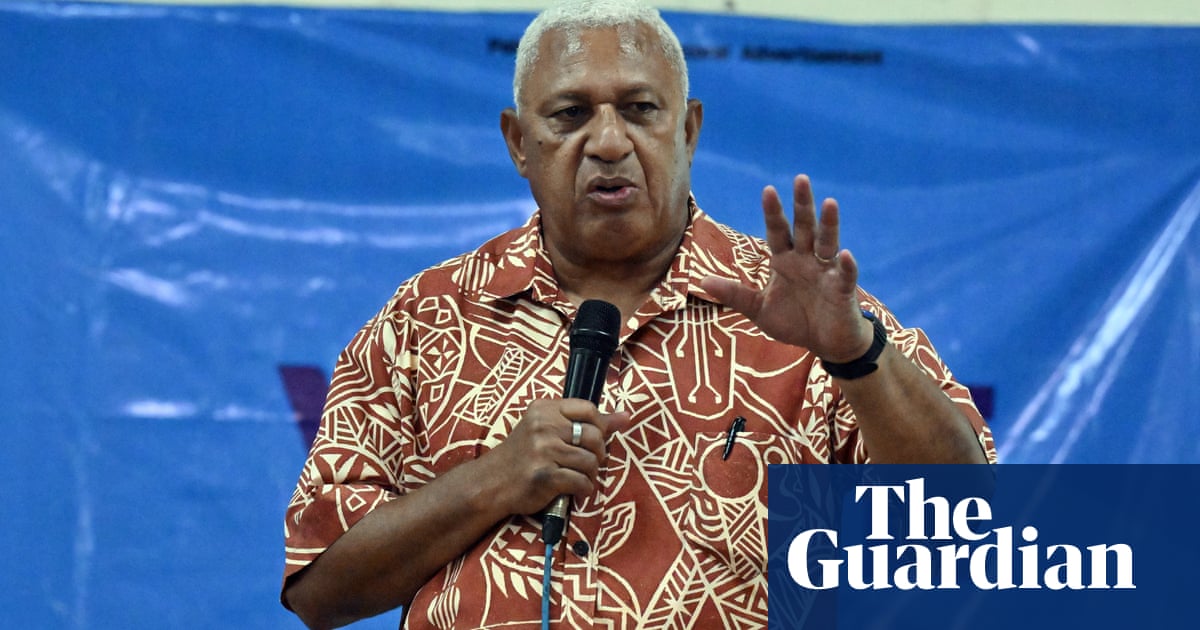
A block of land the government of Kiribati bought in Fiji half a decade ago – ostensibly to serve as a refuge when their country disappeared under a rising ocean – will be transformed into a commercial farm to help feed the i-Kiribati people, with “technical assistance” from China.
The president of Kiribati, Taneti Maamau, announced last week that China would help fulfil his administration’s plan to resume farming on a 22 km sq parcel of land in Fiji, sparking widespread speculation the land would be gifted or sold to China. Maamau has ruled out any military application – “any land or sea base” – for the land.
The land was purchased in 2014 by Maamau’s predecessor, Anote Tong, as a potential new home for i-Kiribati displaced by rising seas: “We were looking for a place that could hold 60,000 or 70,000 people,” his government’s environment minister said at the time.
But scientists have rejected the rationale for the purchase, saying the archipelagic nation was not in danger of disappearing as its sand atolls will rise with the sea level.
The plan, now, to use the estate to grow food for Kiribati – where nearly all vegetables are imported and obesity levels are high - involves turning the estate back into a commercial farm, its former iteration until a few years before its owner, the Anglican church, sold it to Kiribati.
“A strategic plan for the land had been developed and we are seeking technical assistance from China,” Maamau said in an interview with local journalists online.
“There is a lot of potential,” he said, giving no further details, leading to online speculation that the land would be gifted or sold to China.
In response the president’s office on Monday issued a press release decrying “the intentional fabrication of information on social media”.
But the government’s riposte gave no details on the plan: on who – i-Kiribati, Chinese, or Fijians – would farm the land; what would be grown; and for whom?
Presidential aide Michael Foon told the Guardian the plan was to “supply produce to Kiribati,” and “use i-Kiribati workers where possible” with the agreement of the Fiji government.
“China will not be involved in any activities, apart from providing technical advice during the development stages,” he said.
“The plan sounds ideal,” said Banuera Berina, who ran against Maamau in the June 2020 presidential elections. But, he said, the government should be “transparent in its dealings with China over this as with other development projects as well”.
In Fiji, Seini Nabou, the general secretary of the opposition National Federation Party, echoed Berina’s call for transparency, adding “they should employ Fijians; this a blatant disregard of the local immigration laws”.
The announcement came a year-and-a-half after the Maamau administration – first elected in March 2016 on a pledge to maintain diplomatic recognition with Taiwan – abruptly flipped its allegiance to Beijing, sparking a loss of Maamau’s majority in parliament.
Yet Maamau was reelected by a comfortable margin in 2020 and enough MPs crossed the aisle again for him to recover his majority.
In the current budget, Chinese aid is listed at AU$15m, or about twice what Taiwan was contributing.
But Kiribati’s switch to Beijing had stoked western fears that it would pave the way for Chinese military expansion in the Pacific by harnessing Kiribati’s strategic location.
The Micronesian nation of 113,000 people, independent since 1979, is made up of 33 sandy atolls across three archipelagoes, spread over a swath of ocean the size of India.
The capital, Tarawa, is just 1000km south of Kwajalein Atoll and America’s Reagan Missile Test Site, while Kiritimati Island – also known as Christmas Island - is a little more than 2,000km from Hawaii, home of the US Pacific Command and Pearl Harbor Navy base.











